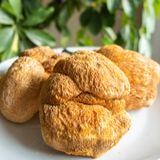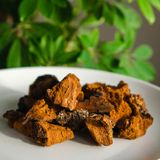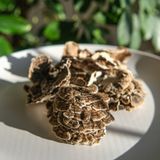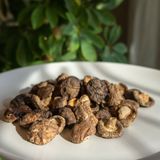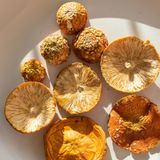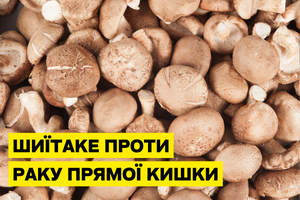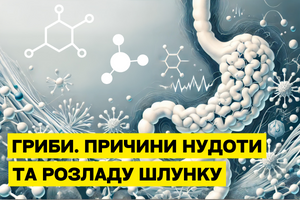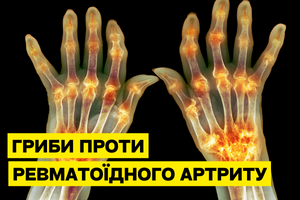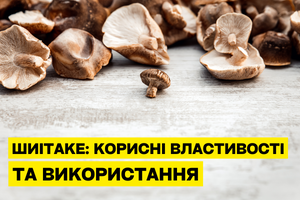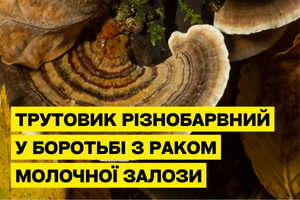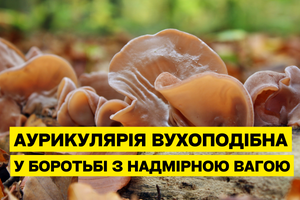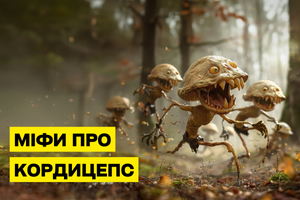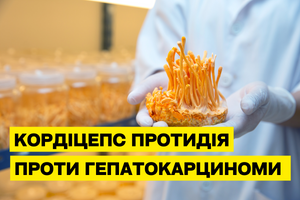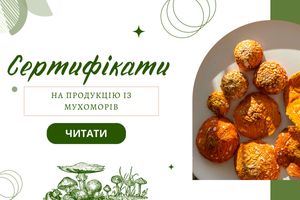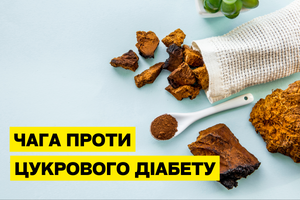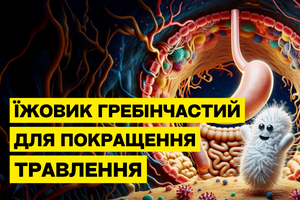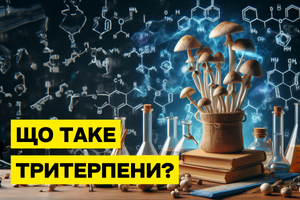Treatment and Prevention of Breast Cancer with Medicinal Mushrooms. Scientific Achievements.
With this article, we want to draw attention to an issue that affects people of all ages worldwide. The incidence and mortality rates of breast cancer are rising daily. According to cancer statistics for 2023, breast cancer among women surpasses even lung cancer, which is the leading type of cancer among men and women.
It is known that various treatment methods, such as chemotherapy, hormonal therapy, surgery, and modified therapy, have different side effects for breast cancer patients. Therefore, prevention, early detection, and treatment of the disease are of great importance.
For many years, mushrooms have been used in alternative medicine in Far Eastern countries, especially in Japan and China. Today, interest in medicinal mushrooms has grown in Western countries as well, aiming to develop alternative therapies. Scientific studies are being conducted to investigate the effects of mushrooms and mushroom extracts on various types of cancer, including breast cancer. Among the studies we have reviewed, in the fight against breast cancer, we want to highlight mushrooms that have antitumor, antioxidant, immunomodulatory properties and have shown the best results:
Lion's Mane (Hericium erinaceus): Contains numerous biologically active compounds such as polysaccharides, hericenones, erinacines, hericerin, and hericenes. These components have a wide range of biological activities, including antioxidant, anti-inflammatory, immunomodulatory, antitumor, and antimetastatic properties. Polysaccharides beta-glucans play a key role in the antitumor and immunomodulatory effects of the mushroom. Studies have shown that after consuming Lion's Mane, the viability of cancer cells decreases by up to 50%, apoptosis (programmed cell death) of cancer cells is induced, their proliferation is reduced, oxidative stress levels are lowered due to antioxidant activity, which also contributes to reducing cell damage and increasing their resistance to mutations.
Chaga Mushroom (Inonotus obliquus): Key components include triterpenoids (lanosterol and inotodiol), polysaccharides, and phenolic compounds. These substances demonstrate high antioxidant activity, which additionally reduces oxidative stress in cells, and have the ability to reduce the growth rate of cancer cells. Results showed significant inhibition of cancer cell growth by up to 67.4%, a reduction in tumor volume by 33.71% at high doses. Triterpenoids such as inotodiol activate caspase-3, a key enzyme responsible for the death of cancer cells. Polysaccharides stimulate the immune system, increasing the activity of natural killer cells (NK cells), which also destroy cancer cells.
Turkey Tail (Trametes versicolor): The main active compounds include polysaccharides such as beta-glucans and polysaccharide-K, xylose, galactose, mannose, glycoproteins, ergosterols, and triterpenoids. These compounds primarily stimulate the immune system, increasing the activity of natural killer cells (NK cells). After completing a course of Turkey Tail, improvements in immune function were observed through an increase in lymphocyte count and NK cell activity, faster recovery after radio- and chemotherapy, and a reduction in treatment side effects, allowing patients to better tolerate treatment, maintain an active lifestyle, and reduce fatigue.
Shiitake Mushroom (Lentinula edodes): Contains many bioactive compounds such as polysaccharides, glycoproteins, ergosterol, and lentinan. These components possess antioxidant, immunomodulatory, and antitumor properties. Especially important is the compound lentinan, which stimulates the immune system and helps destroy cancer cells. As a result, patients taking shiitake experienced a 40% reduction in cell proliferation (the ability of cancer cells to divide rapidly), a 35% reduction in invasion inhibition, and a 30% reduction in migration, meaning cancer cells become less able to penetrate neighboring tissues and spread throughout the body. Apoptosis (programmed cell death) of cancer cells increased by 25%, and oxidative stress decreased by 20%, increasing the protection of healthy cells from damage.
Red Amanita (Amanita muscaria): Key components include muscimol, polysaccharides, ibotenic acid, muscarine, and choline. Research results showed that after a course of treatment, Red Amanita inhibited the growth and spread of cancer cells, induced apoptosis (programmed death of cancer cells). It was also noted that Red Amanita inhibits the growth and metastasis of cancer cells, improves immune response, reduces inflammatory processes in the body and pain. It is important to note that Red Amanita helps cope with stress and anxiety, which is important for both physical and mental recovery.
Of course, if you have already been diagnosed with breast cancer, you should first consult with your doctor and receive appropriate professional treatment!
The mushrooms we have listed can be used in supportive treatment of oncological diseases, complementing and enhancing traditional therapy. These are safe and effective means for improving quality of life and increasing chances of successful recovery. Also, consuming mushrooms can prevent unwanted diseases and contribute to rapid recovery at early stages.
Support your health with natural remedies and protect yourself from dangerous diseases in advance!
All the mushrooms mentioned in this publication can be purchased in our store.
We provide printed translations of articles upon request for our regular customers.
For each client individually, we draw up instructions according to his indicators and requests
Monthly Course:
- Lion's Mane Mushroom (whole/powder) 100 g - $27
- Inonotus obliquus (whole/powder) 100 g - $15
- Turkey Tail whole 100 g - $23
- Shiitake whole 100 g - $19
- Fly agaric whole 50 g - 31$
Other articles on the topic:
- The Use of Lion's Mane and Turkey Tail Mushroom Extracts in Supportive Cancer Treatment
- How Chaga Mushroom Helps in the Fight Against Cancer
- Amanita muscaria inhibits growth and metastasis of breast and colorectal cancer cells
Contact us:






